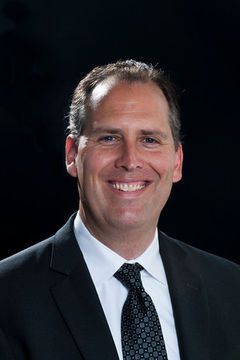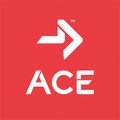Over the past few weeks, COVID-19 has dramatically altered the way business and personal relationships occur. With safety and health as the main priorities, most organizations have closed or modified their operations to limit their employees’ and customers’ potential exposure to the infection. In addition to the health considerations, a number of business concerns have impacted the fitness industry.
Virtual Coaching Considerations
Given the restrictions on public gatherings, many exercise professionals are now offering virtual coaching or training. This poses a few liability and insurance considerations. Certainly, even when training someone remotely, you should ensure that clients not engage in an exercise program without first undergoing a proper health screening and submitting a medical release, if needed. Just because distance prevents personal contact does not mean that the potential liability for the exercise professional disappears.
As part of virtual coaching, a few things must be considered. Will the client watch and follow a video prepared by the exercise professional or will there be interactive instruction? In the case of the former, the potential liability is likely minimal, as long as there is a disclaimer for the viewer to see a doctor before beginning any physical exertion and to cease activity if he or she feels nauseous, shortness of breath, lightheadedness, etc. In situations where there will be interaction, you have a greater duty to keep the client safe. However, one thing to consider is that this is largely an unresolved area of law. Certainly, technology enables conversations and observations, but you may be limited in your ability to properly evaluate the client’s environment, technique, or comfort level. This increases the need for conversation and communication in your sessions, and you should always err on the side of caution and safety when working with clients.
Every exercise professional should consider the liability insurance they have when working with clients. Regardless of whether you are an employee or independent contractor, you should carry your own professional liability coverage and should potentially augment that with an umbrella liability policy, an insurance policy that provides coverage for claims that exceed base coverage levels or for claims that may be excluded from other liability policies. For U.S.-based certified professionals covered under Philadelphia Insurance Companies’ Fitness and Wellness Insurance Program for Instructors as part of ACE’s partnership, you have the option of adding additional coverage to the base option. Professional liability coverage policies need to be evaluated and understood, as they may be limited in their application to specific locations. In some cases, these policies only apply when working with a client at a gym or other “normal” place of business. For years, health coaches and exercise professionals who worked with clients outdoors, at public parks, on public streets, etc., have been advised to check their liability policies to ensure they are insured for potential negligence lawsuits in these environments.
With the advent and proliferation of online instruction, additional language may need to be present in insurance policies to ensure exercise professionals are still covered if they teach or train clients online. The more technical term is a “designated premises endorsement,” which actually defines what part or location(s) are covered. For instance, the Philadelphia Insurance Companies’ Fitness and Wellness Insurance Program for Instructors may cover online instruction if provided on privately-owned premises, but not public parks. Contact your liability insurance company directly for more information.
Certainly, regardless of the environment, you must require that clients submit exercise pre-participation paperwork indicating that they may safely engage in a physical-activity program before beginning exercise. In addition, signed waivers and other appropriate paperwork (such as an agreement to participate) must be collected and retained. (See your Business Tools under MyACE for access to downloadable forms.) Though the current health crisis may change the way business is conducted in the fitness industry, the need for maintaining proper paperwork on file is still paramount. With the advent of activities online, legal challenges are likely to occur and new legal applications are likely to emerge. Regardless of the environment, exercise professionals must keep clients safe and their own liability limited as their first priorities. Though there is a “new normal” occurring, these two foundations of our industry will always remain of utmost importance.
Force Majeure and the Impact on Monthly Payments
Another unsettled legal issue involves force majeure—a natural and unavoidable occurrence that prevents a party from fulfilling its contractual duties. Often referred to as an “act of God,” force majeure clauses are in most contracts, but they are rarely noticed and seldom enforced. However, in the rare cases where such a situation occurs, the language of the contract is important to note. Though earthquakes, hurricanes, floods and other local or regional natural disasters have triggered force majeure clauses, in the modern era of business, there has not been a widespread global quarantining of individuals. Contracts that require payments or other performance of duties will likely be unable to be executed while the attempt to slow the spread of coronavirus dramatically alters how commerce is conducted.
Though various governments have already declared states of emergency, there is likely to be some unsettled law regarding if and how this crisis fits the definition of force majeure. Already, some banks and other businesses have noted that they will modify customer payment requirements, though they may or may not be legally required to do so. Certainly, it is far better to be positioned as a business that cares for its customers’ health and financial well-being rather than one that demands payment in a crisis. However, not every exercise professional or fitness-related business is in a position to simply waive fees or suspend collecting contractually obligated income. More than likely, there will be some lawsuits regarding obligated payments once this health crisis has abated. Health coaches and exercise professionals should understand the need to think long-term about their relationships while at the same time consider their own short-term financial issues. Hopefully, government assistance programs will become available to provide short-term support for businesses and individuals financially affected by this crisis. Until that happens, everyone must balance contractual language with the reality that some customers may be unable to pay.
As fitness professionals use ingenuity to keep businesses running, it is important to review any contracts already in place and ensure that any new business models are covered contractually and under insurance provisions before they are announced.




 by
by 










 by
by